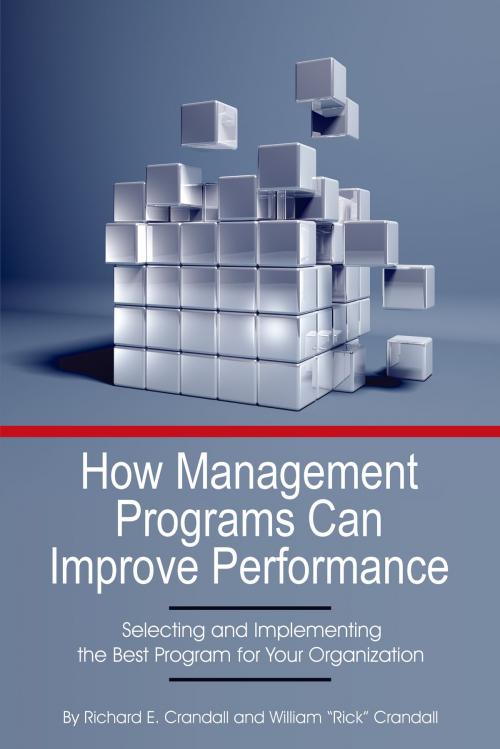How Management Programs Can Improve Organization Performance
Selecting and Implementing the Best Program for Your Organization
Business & Finance, Human Resources & Personnel Management, Organizational Behavior, Management & Leadership, Management| Author: | ISBN: | 9781623969813 | |
| Publisher: | Information Age Publishing | Publication: | February 1, 2015 |
| Imprint: | Information Age Publishing | Language: | English |
| Author: | |
| ISBN: | 9781623969813 |
| Publisher: | Information Age Publishing |
| Publication: | February 1, 2015 |
| Imprint: | Information Age Publishing |
| Language: | English |
All organizations operate in an environment that is rapidly changing. To be successful, the organization must also change. The question is what to change and how. This book will describe in some detail a number of management programs, many of which are known by their threeletter acronyms, such as JustinTime (JIT) or ServiceOriented Architecture (SOA). A management program is designed to improve an organization’s effectiveness and efficiency. However, there are so many management programs it is often difficult for managers to decide which one would be most appropriate for their operation. This book will describe an array of management programs and group them to indicate their primary purpose. The book will also outline a process that will enable managers to select the most appropriate management program to meet their immediate and longterm needs. Implementing a management program is no small task. It can be expensive, timeconsuming, and disruptive of normal operations; therefore, the choice of the management program requires careful selection and implementation. Care must be taken to increase the likelihood of successfully implementing new ventures in all types of organizations business, nonprofit and governmental agencies. Many ventures fail, or achieve limited success, not because the idea isn’t good but because the organization has not adequately prepared its internal capabilities to meet the environmental conditions in which it operates. An important feature of this book is that it can be updated periodically to add new programs and phase out programs no longer relevant. The book will provide readers with a comprehensive description of the most popular management improvement programs and their primary applications to their organizations. We will discuss the philosophy and principles of these programs and include a discussion on how to use each program to achieve optimum success. A central theme of this book is to not just adopt an improvement program for the sake of adopting it, but to match the improvement program with the specific needs in an organization. In the chapters that follow, we will illustrate how this matching process can be conducted. Above all, we plan the book to be a concise and useful resource to both practitioners and academics. Here is what you can expect in the chapters.
All organizations operate in an environment that is rapidly changing. To be successful, the organization must also change. The question is what to change and how. This book will describe in some detail a number of management programs, many of which are known by their threeletter acronyms, such as JustinTime (JIT) or ServiceOriented Architecture (SOA). A management program is designed to improve an organization’s effectiveness and efficiency. However, there are so many management programs it is often difficult for managers to decide which one would be most appropriate for their operation. This book will describe an array of management programs and group them to indicate their primary purpose. The book will also outline a process that will enable managers to select the most appropriate management program to meet their immediate and longterm needs. Implementing a management program is no small task. It can be expensive, timeconsuming, and disruptive of normal operations; therefore, the choice of the management program requires careful selection and implementation. Care must be taken to increase the likelihood of successfully implementing new ventures in all types of organizations business, nonprofit and governmental agencies. Many ventures fail, or achieve limited success, not because the idea isn’t good but because the organization has not adequately prepared its internal capabilities to meet the environmental conditions in which it operates. An important feature of this book is that it can be updated periodically to add new programs and phase out programs no longer relevant. The book will provide readers with a comprehensive description of the most popular management improvement programs and their primary applications to their organizations. We will discuss the philosophy and principles of these programs and include a discussion on how to use each program to achieve optimum success. A central theme of this book is to not just adopt an improvement program for the sake of adopting it, but to match the improvement program with the specific needs in an organization. In the chapters that follow, we will illustrate how this matching process can be conducted. Above all, we plan the book to be a concise and useful resource to both practitioners and academics. Here is what you can expect in the chapters.















